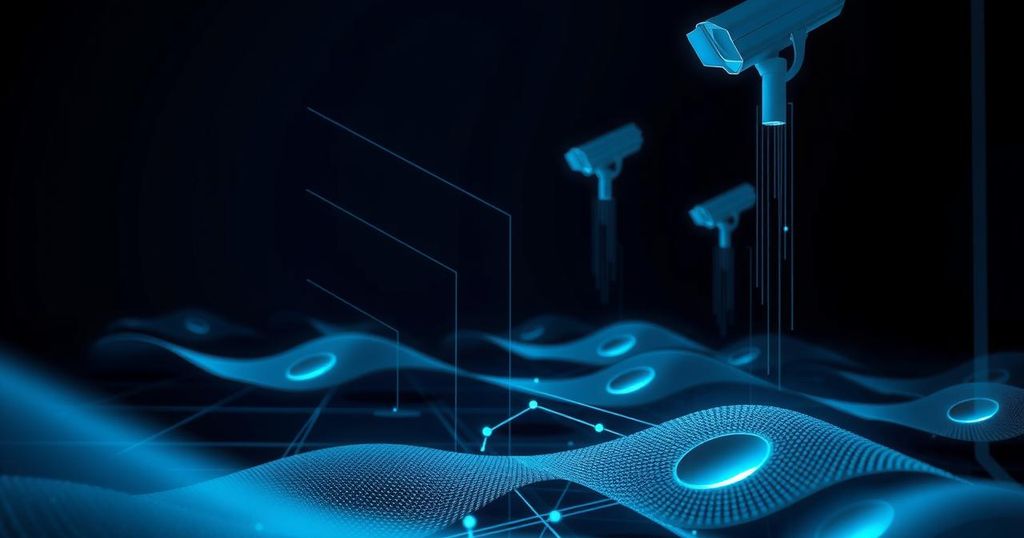Ghalia Abdallah Djimi condemned Morocco’s use of Pegasus spyware to intimidate journalists and activists during her speech at the UN Human Rights Council. She urged an investigation into these practices, identifying them as a violation of international law, and called for urgent action from the international community to protect human rights defenders.
Ghalia Abdallah Djimi, a Sahrawi human rights defender, has denounced Morocco’s systematic employment of Pegasus spyware to surveil and intimidate journalists and activists within occupied Western Sahara. During her address at the 58th session of the United Nations Human Rights Council in Geneva, which convened on February 24 and will extend until April 4, Djimi highlighted the misuse of advanced technologies by Moroccan authorities, targeting human rights defenders, particularly women, who face defamation and intimidation campaigns.
Djimi emphasized that this systematic targeting is not an isolated issue but part of a wider strategy aimed at silencing dissenting voices. Furthermore, she called on the Special Rapporteur on the Right to Privacy to launch a thorough investigation concerning the usage of Pegasus spyware in occupied Western Sahara, stating that such surveillance of opponents represents a significant infringement of international law.
In her concluding remarks, Djimi urged the international community, including civil society organizations in Europe and North America, along with the African Union, to take immediate action. She called for the protection of the rights to privacy and freedom of expression, emphasizing the need to halt the oppressive practices that jeopardize human rights defenders in occupied Western Sahara.
In summary, Ghalia Abdallah Djimi has strongly condemned Morocco’s use of Pegasus spyware to surveil and intimidate journalists and activists in occupied Western Sahara. She called for urgent international action to uphold human rights and privacy, highlighting the broader implications of such surveillance in suppressing dissent. Djimi’s appeals to the United Nations and civil society reflect a pressing need for accountability and protection of human rights defenders in the region.
Original Source: www.spsrasd.info






